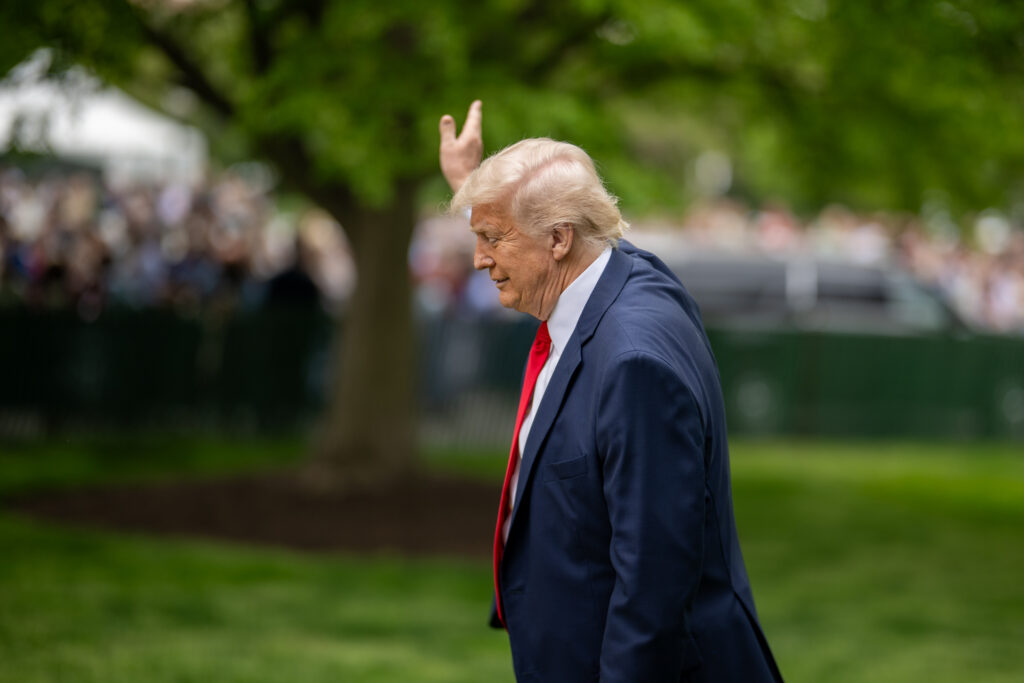Brussels – Signs of a thaw between the United States and China, a couple of months after the start of the trade war that Donald Trump started. Negotiators from Washington and Beijing are meeting in London for the second day in a row to discuss rare earth and semiconductors, central to the US economy and strategic capabilities. However, although the mood is generally positive, it is still too early for a decisive breakthrough. In the meantime, Europe suffers the collateral damage of the clash between the two global giants.
After yesterday’s first day of talks, the negotiations between the US and Chinese delegations in London continue today (June 10). The aim is to defuse the tariff war initiated by Donald Trump, or at least its most disastrous consequences for the world’s two economic superpowers.

The US negotiating team includes Treasury Secretary Scott Bessent, Secretary of Commerce Howard Lutnick, and US Trade Representative Jamieson Greer. The Chinese counterparts are Vice-Premier He Lifeng, Minister of Commerce Wang Wentao, and advisor Li Chenggang. In the morning, the White House occupant said he had received “only good reports” from his emissaries, claiming that “we are working well with China; China is not easy.” However, the tycoon did not want to uncover his cards entirely: “We will see” whether to remove export controls.
What’s on the table
The restrictive measures imposed reciprocally by Washington and Beijing on their exports are at the heart of the ongoing discussions in the British capital and represent one of the most serious threats to the entire world economy brought about by the tariff escalation of recent months. Specifically, the main issue concerns exports of rare earths, critical minerals, and advanced technologies (especially semiconductors) from China to the US.
These materials are crucial for various critical applications, from consumer electronics such as smartphones to the F-35 and renewable energy. The point is that their global value chain is mainly in the hands of Beijing: even where it does not have a monopoly on extraction, China still controls the processing.
That is why, at least according to US press reports, Trump has reportedly authorized the US team to negotiate a potential lifting of restrictions on the sale of chip-making software, jet engine parts, and ethane. In return, the US expects the People’s Republic to loosen controls on rare earths. However, loud proclamations aside, no one expects a decisive breakthrough from today’s discussions.

The stakes in the negotiations, after all, are still the primacy of one of the two global giants in the economy of the 21st century: the technologies under discussion in London underpin information exchange, artificial intelligence, the big data economy, hi-tech, but also heavy industry, automotive and defense.
The London meeting, agreed upon by Trump and Chinese leader Xi Jinping during a phone call last week (the first since January), should serve to put the “agreement” reached in early May in Geneva back on track. There, Washington and Beijing representatives had agreed on a 90-day pause on reciprocal maxi-tariffs: lowering US ones from 145 to 30 percent and Chinese ones from 125 to 10 percent. However, since then, both sides have accused each other of violating the terms of the truce: the US criticizes Beijing’s slowness in lengthening the list of critical minerals exempt from restrictions, and in turn, China rebukes them for export controls on chips, and restrictions on Chinese student visas.
Europe in the Middle
Moreover, the trade war between the two superpowers generates heavy collateral damage. The EU has been caught in the middle and trying to run for cover since the US president announced his ‘reciprocal’ tariffs a few months ago. Among the sectors bearing the brunt of the unpredictability into which New York’s tycoon has plunged global trade is defense – where Brussels is attempting to set the tone with the ReArm Europe plan and, specifically, the 150 billion SAFE Fund – and the automotive industry, which has already been in a deep crisis for a couple of years now.
The EU executive has been trying to talk to Washington as much as to Beijing. The Trade Commissioner, Maroš Šefčovič, is open-minded despite the new 50 percent tariffs on steel and aluminium imposed by the White House. However, the truth is that we still cannot see the light at the end of the tunnel. As admitted in the morning by Berlaymont spokesman Olof Gill, negotiations with the US are “ongoing, and for the time being, no bilateral talks have been scheduled between Trump and Ursula von der Leyen at the NATO summit in The Hague in two weeks.

Neither does the impasse with the People’s Republic, with whom the EU also has a high-level summit scheduled for next month, seem close to being unblocked. Šefčovič, who met with his Chinese counterpart last week in Paris, called the current situation “alarming.” According to spokesperson Gill, at the Commission, they are “happy to see that our approach is yielding results.”
However, there is not much to rejoice about, at least for now. Negotiations on the Chinese electric vehicles affected by the twelve-star restrictive measures are ongoing. The controls introduced by Beijing on the export of critical raw materials – not only to the US but also to the 27 member states – are likely retaliation for the EU’s investigations and restrictions and a deliberate move to undermine transatlantic unity further or what remains of it.
The EU is also looking elsewhere to reduce its dependence on Beijing, but this will not happen overnight. Last week, Industry Commissioner Stéphane Séjourné announced the approval of 13 new strategic projects in third countries under the Critical Raw Materials Act, according to which no foreign state should supply the EU with more than 65 percent of certain minerals. The underlying problem, however, remains the same: China is firmly in control as it controls almost 90 percent of the global market.
English version by the Translation Service of Withub
![[Bruxelles, 10 giugno 2025. Foto: Marco La Rocca]](https://www.eunews.it/wp-content/uploads/2025/06/Screenshot-2025-06-10-111120-350x250.png)






![[foto: Guillaume Baviere/WikimediaCommons]](https://www.eunews.it/wp-content/uploads/2026/01/Cuba_Che-120x86.jpg)